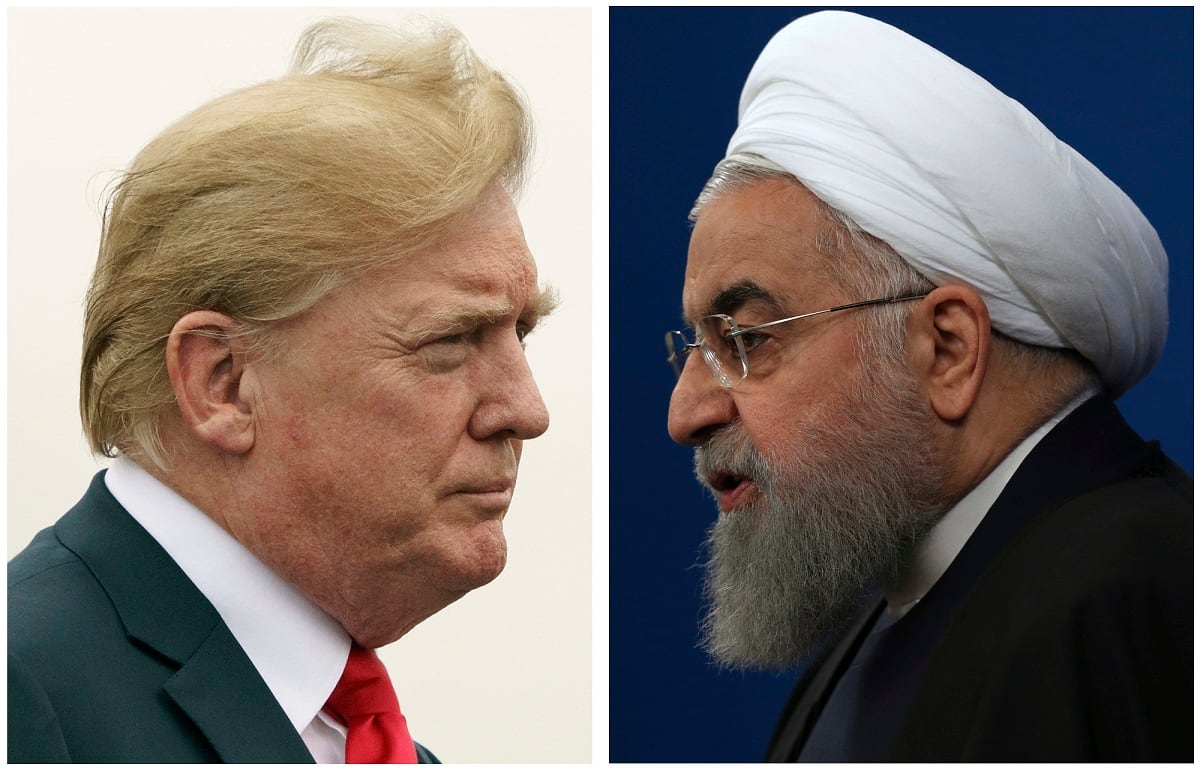WASHINGTON — A senior commander in Iran’s Revolutionary Guard Corps said Monday that Tehran has can expand the range of its missiles beyond the current limit of 2,000 kilometers — the latest in a war of words with Washington.
“We have the capability to build missiles with higher ranges,” IRGC Aerospace Force commander Brig. Gen. Amir Ali Hajizadeh said, according to the Fars news agency. “The number 2,000 kilometers is not a divine decree … what has been decided until today is based on our needs.”
Hajizadeh noted that many “enemy bases” were located 300 to 800 kilometers from the country’s borders.
The remarks, to Iranian university students in Tehran, came days after the U.S. and Iran traded accusations over Tehran’s latest ballistic missile test — and amid accusations that Tehran tested a missile that can reach European countries.
U.S. President Donald Trump in August reactivated economic sanctions on Iran after leaving a multilateral Iran nuclear deal because the deal did not ban Iran’s testing of ballistic missiles.
On Dec. 1, Secretary of State Mike Pompeo accused Iran of test-firing a medium-range ballistic missile capable of carrying “multiple warheads,” in violation of U.N. Security Council Resolution 2231. The missile “allows it to strike parts of Europe and anywhere in the Middle East,” Pompeo said.
Iranian officials have since said that Iran has no plans to develop nuclear weapons, and in a recent news release, it called America’s withdrawal from the nuclear deal as “unlawful.” Iranian officials in recent days have stressed the precision-striking power of the country’s arsenal.
The U.N. Security Council subsequently discussed the matter behind closed doors without taking action. However, Britain’s U.N. ambassador, Karen Pierce, told reporters afterward that members expressed “a lot of concern” about the test launch and said the 2015 resolution doesn’t say nuclear weapons must be on the missiles.
She called Iran’s actions “inconsistent” with the resolution and “part and parcel of Iran’s destabilizing activity in the region.”
“If you wanted to demonstrate to the international community that you were a responsible member of it and you were genuinely interested in regional peace and security, these are not the sorts of missiles you would be test launching,” Pierce said.
U.S. Defense Secretary Jim Mattis recently said that “right now the strategic level of threat from Iran is less worldwide than (North) Korea’s, but it is certainly significant regionally, and it could grow beyond that if it’s not dealt with.”
The Associated Press contributed to this report.
Joe Gould was the senior Pentagon reporter for Defense News, covering the intersection of national security policy, politics and the defense industry. He had previously served as Congress reporter.




